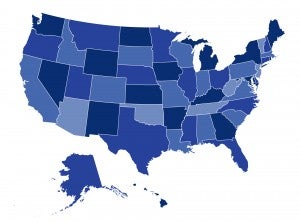
By Justin Giovannelli and JoAnn Volk
With state legislatures now hard at work across the country, the Trump administration is encouraging lawmakers to do what their federal counterparts would not: set aside provisions of the Affordable Care Act (ACA) in service of skimpy insurance products that discriminate against people with preexisting conditions.
Late last year, the administration released sub-regulatory guidance that effectively rewrote the ACA’s section 1332 innovation waiver program. Once recognized as a tool for achieving coverage improvements in line with the ACA’s goals, the administration has recast the program to allow for the implementation of ACA repeal and replace policies that failed to pass a Republican-controlled Congress.
Despite the invitation to “take advantage of new flexibilities” for circumventing ACA requirements, however, the waiver ideas the administration has put forth pose substantial policy, operational, and legal challenges that are likely to make state adoption difficult. Meanwhile, early evidence from the states themselves suggests policymakers remain interested in leveraging already existing flexibility to pursue waivers in support of state-run reinsurance, a proven waiver option with bipartisan appeal.
To read more about state trends under the section 1332 waiver program, you can access our full analysis at The Commonwealth Fund.


1 Trackback or Pingback